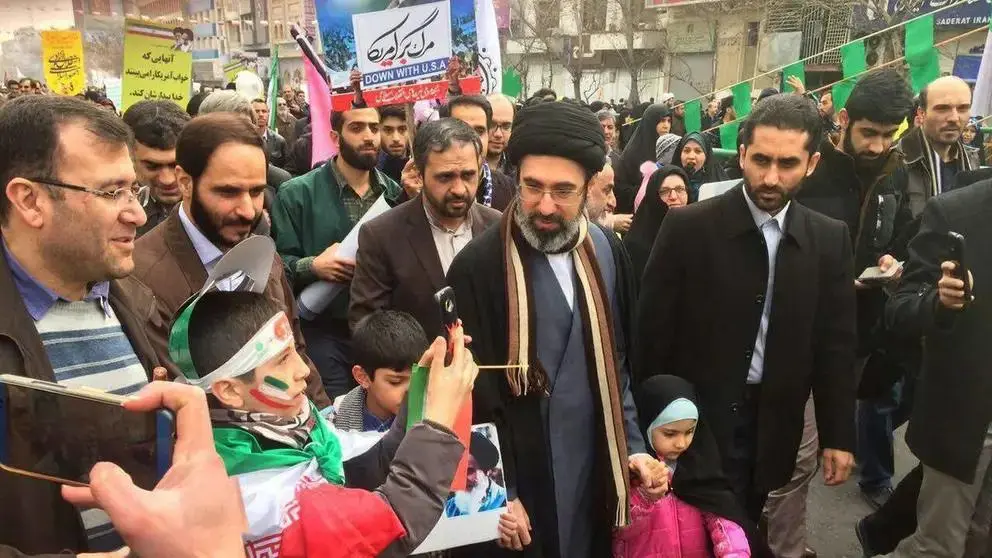Recent reports suggest a significant shift in Iran’s political hierarchy, with Mojtaba Khamenei, the second son of Supreme Leader Ali Khamenei, allegedly chosen as his father’s successor.
The clandestine decision, reportedly made amidst growing uncertainty about the health of the 85-year-old leader, hints at a possible transfer of power even before Khamenei’s death.
This development has raised questions about Iran’s leadership succession and its implications for the nation and the wider region.
A Secret Succession Plan
Iran International, a Persian-language media outlet known for its ties to Iranian regime opponents, broke the news about Mojtaba Khamenei’s alleged selection as Iran’s next Supreme Leader. Despite constitutional provisions that require the Assembly of Experts to elect the new leader, this decision seems to have bypassed public deliberation.
The Assembly of Experts, tasked with the monumental responsibility of selecting the nation’s Supreme Leader, was last elected in 2024 and is set to serve until 2032. However, its role in Mojtaba’s selection remains ambiguous.
Read : ‘Hijab Removal Treatment Clinic’ Started in Iran for Women Who Refuse Hijab
According to reports, a four-member council within the Assembly has been evaluating potential candidates in strict secrecy. This council has reportedly advised Ali Khamenei on the succession, ensuring that the choice aligns with the principles of “truth, the need of the country, and God.”
Read : Israeli Foreign Minister Threatens Iran, Saying It ‘Deserves to Be Destroyed’
As of November 2024, an Assembly member confirmed that the next leader had been chosen, though the individual’s identity remained undisclosed for security reasons. This revelation coincides with other reports indicating that Mojtaba had recently quit seminary studies, a move interpreted as preparation for assuming leadership.
Mojtaba Khamenei: A Controversial Heir
Mojtaba Khamenei’s rise to prominence is both surprising and contentious. Unlike his father, whose leadership was shaped by decades of political involvement, Mojtaba’s career has largely unfolded behind closed doors. Known for his influence over Iran’s powerful Revolutionary Guard and economic interests, Mojtaba wields significant authority despite his relatively low public profile.

His close ties to the military establishment and clerical elite have been pivotal in consolidating his candidacy. Critics argue that Mojtaba’s selection reflects a dynastic ambition, undermining the democratic ethos embedded in the Assembly of Experts’ mandate. However, supporters view him as a continuation of his father’s legacy, ensuring ideological and strategic continuity in Iran’s governance.
The succession plan has also been influenced by recent events. The death of then-President Ebrahim Raisi in a helicopter crash earlier in 2024 removed a key contender from the race. Raisi, a hardline cleric, was widely considered a frontrunner due to his alignment with Khamenei’s vision. With his passing, Mojtaba emerged as the leading candidate, signaling a preference for familial succession over broader clerical representation.
Implications of Mojtaba’s Leadership
Mojtaba Khamenei’s potential ascension marks a turning point in Iran’s political trajectory. While his leadership style remains largely speculative, his deep ties to the Revolutionary Guard suggest a continuation of Iran’s militarized and ideologically rigid policies. His influence over economic networks, including those linked to the Guard, raises concerns about increased centralization of power and potential resistance to political reforms.

Regionally, Mojtaba’s leadership could impact Iran’s foreign policy, particularly its relations with neighboring countries and the West. With tensions already high over Iran’s nuclear program and regional influence, his appointment might escalate confrontations or, conversely, present an opportunity for recalibrating Iran’s strategic priorities.
Domestically, Mojtaba’s rise is likely to be met with mixed reactions. While segments of the political elite may welcome his continuity-driven approach, opposition groups and reformists may view his appointment as a consolidation of authoritarian rule. The secrecy surrounding his selection process could further alienate an already disillusioned populace, sparking calls for greater transparency and democratic governance.
The alleged selection of Mojtaba Khamenei as Iran’s next Supreme Leader signals a pivotal moment in the country’s history. While the decision underscores the continuity of Iran’s ruling ideology, it also raises questions about the transparency and legitimacy of the succession process. As the world watches, the implications of this transition—both for Iran and the broader geopolitical landscape—remain profound.

